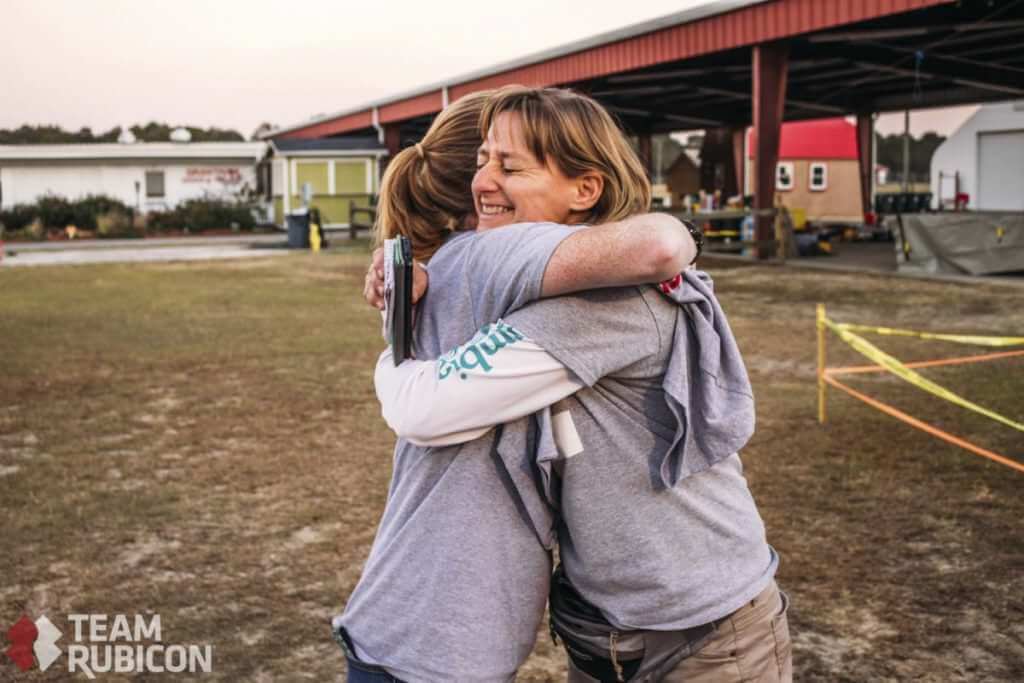I joined Team Rubicon in May of 2013 and deployed to Operation Starting Gun in Moore, Oklahoma. I found myself with a group of veterans and first responders who all worked well as a team under a relatively small group of leadership.
With the structure I witnessed on Operation Starting Gun, I noticed they were able to adapt and even change course as the scope of the work shifted. It was what I’d been looking for, with a decade of experience in other disaster response organizations.

Bess Wells completed Sawyer 1 training during Operation Seymour Action.
Many volunteer agencies do great work, but TR is unique in its goal to not only help those affected by disasters, but also help the veterans who feel they have lost their sense of purpose. My personal experience began with an older veteran who was physically struggling to perform the work we were tasked with. I asked the Incident Management Team Chief, Vince Moffit, why we don’t send volunteers who are having a difficult time home? He explained, how the man joined TR to serve and that we needed everyone’s help to complete the mission.
I found a place for him to help by riding in one of the trucks and handing out water bottles to the rest of the volunteers spread across the work site. In the end he came back so happy and moved by our mission. That incident was influential in changing my focus from just “work comes first” to include the volunteer experiences.

During Operation Starting Gun, I once witnessed a volunteer crouched with his head between his hands I asked if there was anything I could do to help; he said you already did by listening. The man explained to me he suffered from a Traumatic Brain Injury (TBI). He was ok the next day and continued to teach others how to run heavy machinery.
While volunteering in Goldsboro, NC we were all asked to walk in the Veterans parade. It was great to see the community support for Team Rubicon.
We had been working in the community for about two weeks. Working with so many great volunteers, you don’t always know who’s a veteran, firefighter, police officer, paramedic or civilian.

As a civilian, sometimes I feel out of place. I expressed my feelings to a veteran that day while sharing my experiences from Moore, OK, and she told me that it was vital we had civilians with us on these operations. “The fact you have worked alongside us and understand we do not all have Post Traumatic Stress Disorder (PTSD) and TBI’s is important,” she said. “When you go back home and explain this to your friends, it helps the community accept us as veterans.”
At every disaster you will find the communities we are there to serve reaching back, offering to help us as well.
It is important that we allow them to help us with food or donation, always making time to talk with them when they come to our Forward Operating Base (FOB); this is part of the community’s recovery. Part of the healing process for individuals or families affected by a disaster is telling their story, which we help them do.

Watching the circle of assistance go from one hand to another until it’s complete, makes me feel amazed to be a part of our great team and our community. It’s here, during stressful moments when we can come together that I see a hopeful narrative – I see love, patience, caring and kindness.



